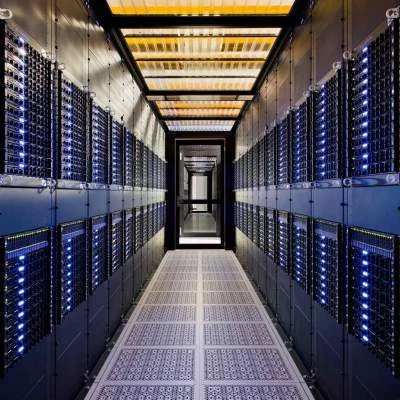Verizon Capitalizing On Automation and Humanization With VP, Kelley Kurtzman
A CCW Digital Exclusive
Add bookmark
“It’s really how you take that automation with timely human assistance and marry those together. I think that’s a home run,” Kelley Kurtzman, Verizon Vice President - Global Consumer Sales & Service Centers recently told me.
With over a million inbound customer service inquiries per month, Verizon's Business Service Assurance and consumer sales and service groups need to be agile if they want to continue to enjoy the number one national rank in network quality.
Read More: Putting Employees At The Heart Of Your Business (With Annette Franz)
Until recently, each customer request had to be read and individually acted on until Global Technology Solutions (GTS), Verizon's IT group, leveraged natural language processing (NLP) and deep learning in real-time.
“How important is automated customer service in terms of an ROI for Verizon?” I asked Kelley Kurtzman, curious to see where she would take the conversation, to which she replied:
“…50 percent of consumers will switch carriers if their experience is not anticipated or personalized,” she said, implying how imperative it is to be proactive, rather than reactive.
“The days of being able to get lost in an IVR and not knowing who the customer is and asking for that information again [are over]...”
Read More: Q&A With TGI Friday's Chief Experience Officer
“If you think about the journey we’ve been on with personalization and customization and really enabling this customer-first ecosystem powered by AI, the reps feel a little bit nervous sometimes like they’re going to be replaced by automation. And what we keep talking about is let the customer self-serve… and save those complex emotive conversations for you [the employee],” said Kelley.
And that’s exactly what Verizon is doing in 2020.
Non-coincidentally, Stefan Toth, executive director of systems engineering for Verizon Business Group, Global Technology Solutions, recently shared the same philosophy between humanization and automation about their new NLP customer service tool, the Digital Worker.
Read More: Special Report Series: Omnichannel Chatbots (Sponsored by Salesforce)
"In essence, the Digital Worker takes tasks that can be executed automatically away from the engineers so that we can use the engineers' time in operations to actually deal with real, complex scenarios that need their intelligence... We want to take away the time engineers spend answering emails and allow them to deal with complex networking problems."
In addition to the sheer volume of customer requests, primarily via email and Verizon’s web portal, delays and human errors in responding to those requests hurt the customer experience.
The team previously attempted automating responses to the most frequent requests using a static, rules-based approach that ultimately proved limiting.
(Rules-based systems need to be hand-coded, and increasing their accuracy means increasing their complexity, which can require a great deal of effort).
NLP systems, on the other hand, can be updated by adding to the bulk of actionable analytics on which they are trained, or deep learning over time. 
"We quickly realized we needed something smarter," said Toth.
The result was the AI-Enabled Digital Worker for Service Assurance, which has earned Verizon a FutureEdge 50 Award for innovative use of emerging technologies.
The Digital Worker is integrated with Verizon's Trouble Management System to automate the most common inbound electronic customer requests, allowing Verizon’s automation to handle the large quantity of simple tasks while humans handle complex ones (instead of vice versa).
"By automating responses to these requests, we respond within minutes as opposed to hours after the email was sent," Toth says, shaving response times, handle times, and customer-to-agent turnover rates.
The team's data scientists worked closely with business subject matter experts (SMEs) to build a model and collect historical data on which to train it. Operations engineers provided a feedback loop early in the process by reviewing the algorithm's conclusions (to ensure the system could “learn” over time).
As Kelley told me, “I should be able to say ‘Hey Matt, I see you were online and you were ordering a triple play [an internet, TV, and Digital Voice package]. Let me help you finish that order.”
Verizon can accommodate consumers to this level through a plethora of automated tools able to pull data from the web, consumer profiles, and data archives to create intelligent human decisions in real-time.
The Digital Worker, as one of these tools, has succeeded in saving nearly 10,000 worker hours per month since the second quarter of last year, Toth says. Through more actionable data aggregation, the company can now respond to customer requests in seconds rather than hours, and with greater than 99 percent accuracy to boot. In the fewer than 1 percent of cases that do require human intervention, the team retrains the model and makes it even better, according to Toth.
Read More: How Under Armour Aligned Front-Line Employees With Their Brand: As Told By Former VP Of Retail
“We have a plethora of information about our customers. We know their viewership, their network speeds, the equipment that they have… how they’re interacting with us, making sure you take that data, leveraging the analytics and then generating insights and turning that into action that fuels our platforms that feed our channels. So when it gets to the channels they [agents] know your journey and where you’ve been and what you’ve done.”
























